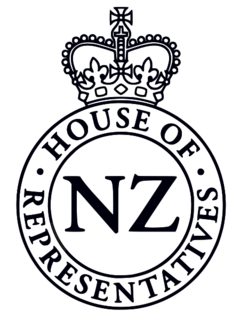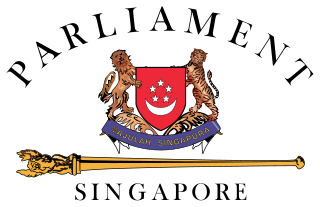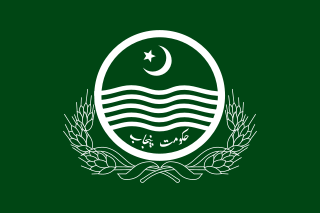
The House of Lords, formally The Right Honourable the Lords Spiritual and Temporal of the United Kingdom of Great Britain and Northern Ireland in Parliament assembled, also known as the House of Peers, is the upper house of the Parliament of the United Kingdom. Membership is by appointment, heredity or official function. Like the House of Commons, it meets in the Palace of Westminster in London, England.
The United States Constitution provides that each "House may determine the Rules of its Proceedings," therefore each Congress of the United States, upon convening, approves its own governing rules of procedure. This clause has been interpreted by the courts to mean that a new Congress is not bound by the rules of proceedings of the previous Congress.

The Speaker of the House of Representatives is the presiding officer of the House of Representatives, the lower house of the Parliament of Australia. The counterpart in the upper house is the President of the Senate. The office of Speaker was created by section 35 of the Constitution of Australia. The authors of the Constitution intended that the House of Representatives should as nearly as possible be modelled on the House of Commons of the United Kingdom.

The President of the Senate is the presiding officer of the Australian Senate, the upper house of the Parliament of Australia.

The House of Representatives is the sole chamber of the New Zealand Parliament. The House passes laws, provides ministers to form Cabinet, and supervises the work of government. It is also responsible for adopting the state's budgets and approving the state's accounts.
A serjeant-at-arms, or sergeant-at-arms, is an officer appointed by a deliberative body, usually a legislature, to keep order during its meetings. The word "serjeant" is derived from the Latin serviens, which means "servant". Historically, serjeants-at-arms were armed men retained by English lords and monarchs, and the ceremonial maces which they are associated with were originally a type of weapon.

In New Zealand, the speaker of the House of Representatives, commonly known as the speaker of the House, is the presiding officer and highest authority of the New Zealand House of Representatives. The individual who holds the position is elected by members of the House from among their number in the first session after each general election. They hold one of the highest-ranking offices in New Zealand. The current Speaker is Trevor Mallard, who was initially elected on 7 November 2017.

The Victorian Legislative Assembly is the lower house of the bicameral Parliament of Victoria in Australia; the upper house being the Victorian Legislative Council. Both houses sit at Parliament House in Spring Street, Melbourne.

The Parliament of the Democratic Socialist Republic of Sri Lanka is the supreme legislative body of Sri Lanka. It alone possesses legislative supremacy and thereby ultimate power over all other political bodies in the island. It is modeled after the British Parliament.

The Parliament of Singapore and the president jointly make up the legislature of Singapore. Largely based from the Westminster system, the Parliament is unicameral and is made up of Members of Parliament (MPs) who are elected, as well as Non-constituency Members of Parliament (NCMPs) and Nominated Members of Parliament (NMPs) who are appointed. Following the 2020 general election, 93 MPs and two NCMPs were elected to the 14th Parliament. Nine NMPs will usually be appointed by the president.

The Hellenic Parliament, also known as the Parliament of the Hellenes, the Hellenic Bouleterion or Greek Parliament, is the unicameral legislature of Greece, located in the Old Royal Palace, overlooking Syntagma Square in Athens. The parliament is the supreme democratic institution that represents the citizens through an elected body of Members of Parliament (MPs).
The Clerk of the Parliaments is the chief clerk of the House of Lords in the Parliament of the United Kingdom. The position has existed since at least 1315, and duties include preparing the minutes of Lords proceedings, advising on proper parliamentary procedure and pronouncing the Royal Assent. Many of the Clerk's duties are now fulfilled by his deputies and the Clerk of the Parliaments' Office.

The Parliament of the Cook Islands is the legislature of the Cook Islands. Originally established under New Zealand’s United Nations mandate it became the national legislature on independence in 1965.

The Provincial Assembly of the Punjab is a unicameral legislature of elected representatives of the province of Punjab, which is located in Lahore, Pakistan. The Assembly was established under Article 106 of the Constitution of Pakistan as having a total of 371 seats, with 297 general seats, 66 seats reserved for women and eight reserved for non-Muslims.
The Clerk of the House of Commons is the senior procedural and administrative officer in the House of Commons of Canada.

The Speaker of the Parliament of the Democratic Socialist Republic of Sri Lanka is the presiding officer of the chamber. The current Speaker of the Parliament is Mahinda Yapa Abeywardena, in office since 20 August 2020. The Speaker fulfills a number of important functions in relation to the operation of the House, which is based upon the British Westminster Parliamentary system.

Erskine May is a parliamentary authority originally written by British constitutional theorist and Clerk of the House of Commons, Thomas Erskine May.

The Speaker of the Jatiya Sangsad is the presiding officer of the Parliament of Bangladesh. The speaker is elected generally in the first meeting of the parliament following general elections. Serving for a term of five years, the speaker chosen from sitting members of the parliament, and is by convention a member of the ruling party or alliance.
A law clerk, sometimes called parliamentary counsel, is an officer in some parliamentary systems. The law clerk is charged with providing advice on legal issues and parliamentary procedure to the Speaker and members of the chamber. The position is neutral and non-partisan.

The Clerk of the New Zealand House of Representatives is an officer of the New Zealand House of Representatives and is the principal officer of the Office of the Clerk of the House of Representatives.

















